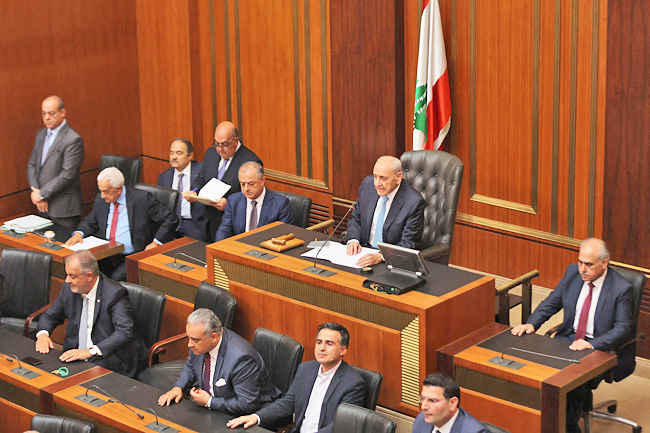BEIRUT (AFP) – Lawmakers in crisis-hit Lebanon will make a 12th attempt to elect a new president, but bitter divisions between the powerful Iran-backed Hezbollah and its opponents are expected to mar the vote.
Lebanon has been without a head of state for more than seven months, and the last bid to elect a president was held on January 19.
The vote for the presidency, reserved for a Maronite Christian under Lebanon’s delicate sectarian power-sharing system, pits the Hezbollah-backed Sleiman Frangieh against financial official Jihad Azour, who has mainly been endorsed by Christian and independent legislators.
With no side appearing to have the numbers to get their candidate across the line, analysts said the vote could further entrench a political stalemate, dimming hopes of saving the economy after three years of meltdown.
“It’s very unlikely that this session will end with the election of a president,” analyst Karim Bitar said.

As the 11 before it, yesterday’s attempt would likely “only be a way for political forces to gauge their respective electoral weight” and see how many votes they can get, he added.
Lebanon is facing a double power vacuum, with the country governed by a caretaker Cabinet with limited powers for more than a year.
The international community has urged politicians to elect a consensus presidential candidate who can help the country enact reforms required to unlock billions of dollars in loans from abroad.
A former lawmaker and minister Frangieh who is a friend of Syrian President Bashar al-Assad, hails from a storied family dynasty, like many of Lebanon’s prominent political figures.
On Sunday, he promised to be “the president of all Lebanese” despite his polarising alliances.
Azour was finance minister from 2005 to 2008 and has stepped aside from his role as the director of the Middle East and Central Asia department at the International Monetary Fund in view of the presidential contest.
The winner needs two-thirds majority, or 86 votes from the 128 Members of Parliament (MPs) – but Hezbollah and its allies have posted spoilt ballots to disrupt previous votes.






